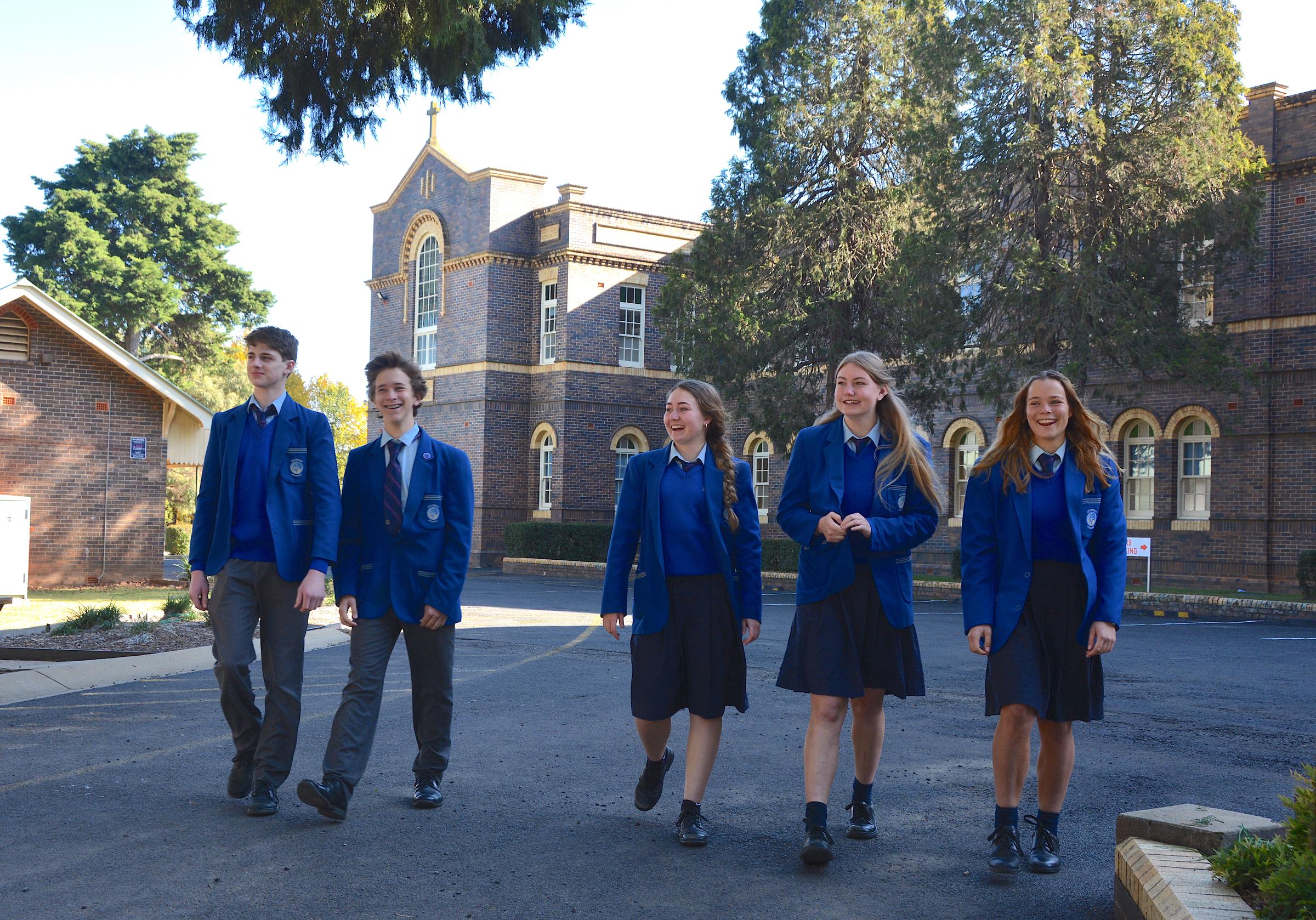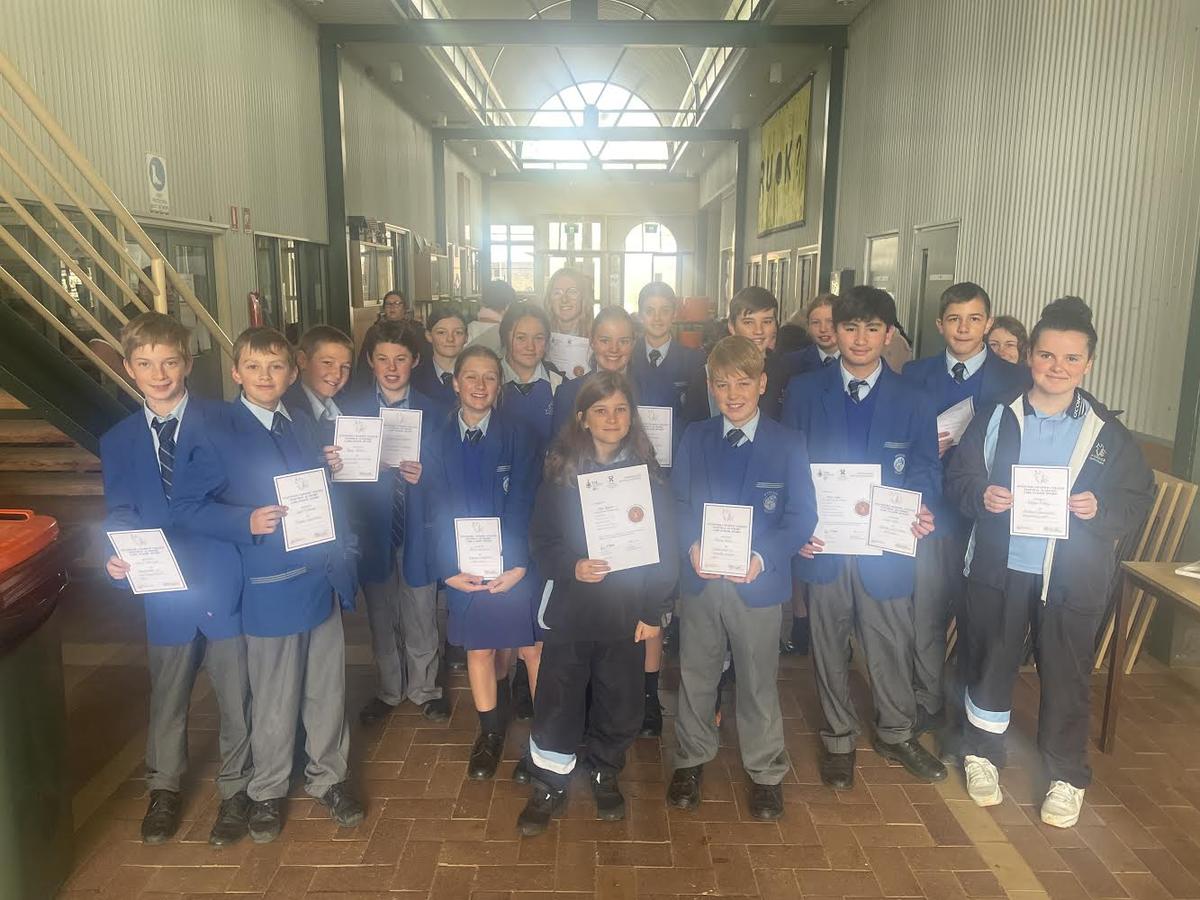Pastoral Academic Care (PAC)

Pastoral Academic Care (PAC) Focus - Mental and Physical Health
Wellbeing Element: Health and Strengths.
Character Strength: Judgement
Parent Well Being:
To enjoy a healthy state of wellbeing you need to have optimism and hope for the future which relies on: goals, which guide your actions, pathways which are ways to achieve your goals and motivation, which activates your pathways. Think about how you are developing each of these optimism and hope components.
The mind-body connection is about how our physical wellbeing is closely related to our mental health. A change in one causes a change in the other. For example, when students are feeling under pressure from things such as, social media, relationships, self-image or studies, they go into fight or flight and their bodies rev up for action. This response is meant for only short periods of time.
The 21st century is both fast paced and high tech with 24/7 devices which are consuming our young people and causing them to feel the fight or flight response for extended periods of time. This situation can cause them to feel over stressed, have increased negative mind chatter, increased bad habits, have relationship issues, increased physical health problems and exhaustion. All of these problems weaken their immune system making them much more susceptible to illness.
To address this, we need to encourage students to engage in mindfulness activities to flush the excess brain chemicals causing the problems out of their systems. To be effective, mindfulness activities must have three components: pattern – do the same thing, control – concentrating to master doing the pattern, and repetition – doing it over and over.
Simple, but effective mindfulness activities include colouring in and doing boring things like brushing their teeth thoughtfully.
Acknowledgement: Rath & Hassed
Year 7
Mrs Natalie Mellowship-Brown
Our Living Well, Learning Well (A Student Support Framework for the Diocese of Armidale) is something that the Year 7 cohort have been familiarising themselves with since the start of the academic year. Within this framework lies the Rules for Living that we have been using with our students to remind them of expectation and how to have a really positive experience here at O’Connor.
I am safe
I am valued, respected and cared for
I am a learner
Over the coming weeks in morning PAC, students will be reflecting on these rules and what they mean to each and every individual. Everyone has the right to a positive learning environment, with that comes a responsibility not to interrupt the learning of others. Everyone has the right to feel safe. Behaviour that interrupts the learning environment or results in people not feeling safe and supported has consequences.
“Without continual growth and progress, such words as improvement, achievement, and success have no meaning”, (Benjamin Franklin)
Success and achievement are skills, and something that you can learn. For some of our Year 7 students, these skills come easily, but for others, not so much. Success and achievement is what drives us forward, it is something we all seek, something which if we fail to achieve, it can be quite devastating. The notion of achievement or accomplishment is so important in the lives of our students and here at O’Connor Catholic College, we absolutely love to celebrate success, be it big or small. This week in our Year assembly, we were able to celebrate the successes of so many of our students as pictured.
Mrs Natalie Mellowship-Brown and the Year 7 PAC Team
Year 10
Ms Amanda Bell and Mr Frank Patricks
Hello to all. As we travel through life there are many obstacles placed in our way that can at times try our patience. It is how we approach these obstacles that can really determine who we are. If there are negative influences in our life we can only change the internal influences, meaning we change what we do to improve ourselves. With external influence we can only create strategies that minimise the impact of these influences on ourselves. So make a choice to change those things around you that you are not happy with.
Choices, smart choices.
Just some things to think about:
• What makes you want to set the whole world on fire?
• What issues are you really passionate about?
• Where do you get your energy to try and change the world?
• What are the ‘deeds’ or works that you do to live out your Christian faith?
• How does your faith provide a foundation for the work you do?
• Are ‘deeds’ equally valuable when they are not inspired by love?
• Are ‘deeds’ still Christian if they are not inspired by love?
As technology advances further and further it has begun to dictate not only how we communicate with each other (method) but also the way we communicate. Text messaging provides the instant gratification of feedback and praise from a friend with the usual LOL, TTYL and FYI.
When Frederic Ozanam said “embrace the world in a network of love” he had no idea we’d be sending virtual hugs and liking, pinning, tweeting and trending our joys and sadness across the world. He had no idea that in the 21st century the term “network” would have a whole different meaning that potentially means each and every person in the world is only a few cables and an internet connection away.
While there are many positives of such ease of access to communication such as organising social events, remembering birthdays and tweeting celebrities there are also the downfalls which can have drastic consequences. The impact of your words can either be positive and build people up or negative and tear people down. Sometimes we don’t realise the impact our words on social networks can have. Social media has its own set of social rules and language. However, the instant nature of social media can result in less respectful interactions than face to face communication. Before we send an email, write something on someone’s wall or tag someone in a tweet we must stop and THINK.
• What impact either negative or positive might this comment, post or tweet have on the individual or others who view these?
• Could my comments etc. be seen by someone as cyber bullying?
• Could this post be offensive?
• A comment or post that we believe is funny or a personal joke by one person could offend someone else.
On a final note, from all the Year 10 PAC team, thank you for being you. Yes, at times, you can test the Year 10 PAC teams temperament, however, each and everyone of you contributes to this wonderful community at O’Connor Catholic College. Keep studying hard and engaging in class and enjoy the pleasure of being a wonderful member of this community. Keep it up! It is truly a pleasure to watch you developing into young adults.
Ms Amanda Bell / Mr Frank Patricks (on behalf of the Year 10 PAC team)
Year 11
Mrs Vicki Channon
Thank you to all of the parents and carers that were able to attend the face to face interviews this week, including zoom. It is really encouraging to see the level of engagement with families and the school community. It certainly does assist in the success of the student’s time at school. I enjoyed meeting with you. There is always the opportunity to contact teachers at school if you have a concern, so please do not hesitate to do this.
Reporting for the majority of our Year 11 students was very positive. It is important that students work with their teachers to find strategies to move forward with their learning. The responsibility does not just lie with the teacher, and it is encouraging to note that many of our students are engaged, positive, and proactive in their learning.
Flexible learning on Tuesday Week B seems to be working well. Students are asked to complete a Google Form in regards to this. It asks them to plan what they will be working on in this 2 hour time frame, and let us know if they are using this time wisely. We will be conducting a survey to evaluate this time in the near future.
We have been working towards a writing focus on Wednesday mornings as part of our College’s Annual Improvement Plan. The basic idea is to encourage, develop and continue to improve our writing skills as we head into senior studies where writing is important (and for beyond school) whether you are getting an ATAR or not. The results of this activity will continue to be monitored and recorded as part of our data collection as to ways of improving writing across our year group.
Mrs Vicki Channon (on behalf of the entire Year 11 PAC team)

